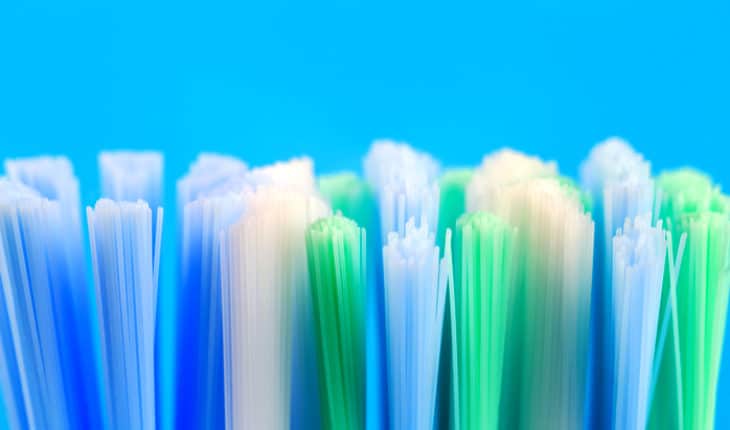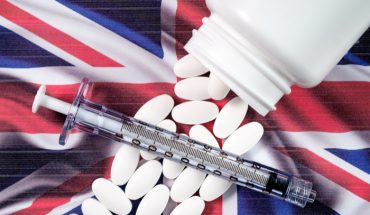NHS dental service in crisis: Charity calls for funding boost to dentistry as it tops list of most delayed health services: New research collected by the Oral Health Foundation has found further evidence of an NHS dental service in crisis. The oral health charity is now calling on ministers to promptly address the issue of backed up dental appointments and provide the support NHS dentistry needs to get back on track.
A survey of over 2,000 British adults has found that almost half (45%) reported delays to their dental appointments or treatments in the last 12 months. This is more than any other health service including GP surgeries (30%), hospital services (16%) and mental health support (11%).
Latest figures suggest that as many as 20 million dental appointments have been delayed or cancelled since March 2020.
Dr Nigel Carter OBE, Chief Executive of the Oral Health Foundation, believes that vital funding and support is needed for NHS dentistry to avoid the nation sleepwalking into an oral health crisis.
Dr Carter says: “Dentistry has been severely underfunded for many years and services have suffered greatly during the pandemic. To address the backlog caused by COVID-19 restrictions, and to ensure dentistry does not fall behind other crucial health services, now is the time for government to provide more funding and invest in the nation’s oral health.
“Regular dental visits are key for maintaining good oral health. Dentists can spot oral health problems in the early stages and provide patients with advice and care that can save them from both invasive and expensive treatments later down the line.
“Dentists also conduct potentially life saving mouth cancer checks as part of every routine appointment. Many people are unaware when it comes to mouth cancer symptoms and how to look for it and therefore the only mouth cancer check they’d get is when they have their regular appointment.”
As a result of delays to dentistry over the last year, one-in-ten (12%) people have accessed remote dentistry services in the last 12 months. This includes telephone advice, video calls and emails with their dental team.
Despite the ease of remote advice services, three-in-four (74%) say they prefer physical appointments with their dental team. This was much higher than for general health, where just over half (59%) said that they would prefer physical appointments.
Despite a reduction in services over the last year, the charity is keen to get more Brits back into the dental chair. Dr Carter wants to emphasise that while dental practices have suffered several challenges during the pandemic, they have adapted well and ready see more patients.
Dr Carter adds: “Dental professionals have done an excellent job adapting during the pandemic in spite of very difficult challenges. The good news is that many dentists, dental hygienists and therapists, are now able to see fare more patients than they were last summer, and the range of treatments available should be back to normal.
“If you have not seen a dentist since the beginning of the pandemic, I would urge you to give them a call and enquire about an appointment. Regular dental visits are crucial for maintain a good standard of oral health and can identify problems long before they become more serious.”
The research has been commissioned by the Oral Health Foundation as part of National Smile Month – a charity campaign championing the benefits of good oral health and a healthy smile.
The initiative is being supported by a wealth of some of the UK’s most well-known household brands, including Invisalign, LISTERINE®, Oral-B, Corsodyl, Sensodyne, TePe, Philips and the Wrigley Oral Healthcare Programme.
Throughout National Smile Month, the Oral Health Foundation and its partners are looking to support the nation in taking steps to improve their oral health. The charity is highlighting that while dental visits remain essential for a healthy mouth, the cornerstone to good oral health remains at home.
“A healthy smile can be achieved at home with a simple and easy daily routine,” Dr Carter says.
“The most important action you can take is to brush your teeth for two minutes, last thing at night and one other time during the day, with a fluoride toothpaste. It also means cleaning between your teeth every day with interdental brushes or floss and also cutting down how much and how often you have sugary foods and drinks.
“Dental disease is largely preventable. Following these steps will set you up on the path for a lifetime of good oral health.”
For more information about our National Smile Month campaign and how you can achieve better oral health head to www.smilemonth.org. Alternatively, if you would like to receive oral health information and advice over the phone then call our Dental Helpline on 01788 539780.
References:
- Oral Health Foundation, ‘National Smile Month Survey 2021’, UK, Broadcast Revolution, April 2021, Sample 2,009.
- New lipid-based pathway discovered as key to memory formation - 25th June 2025
- Crucial link could explain how Alzheimer’s takes hold - 25th June 2025
- Understanding Your Mind Can Improve Daily Life - 25th June 2025







